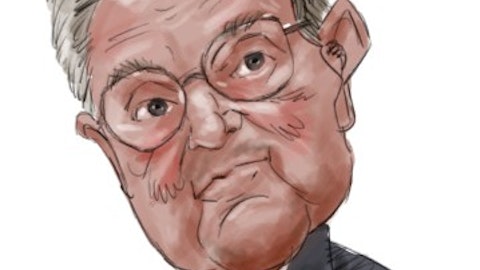The Chinese trade war continues as President Trump presses for fairer policies. After enacting 10% tariffs on many Chinese imports, Trump has threatened to enact tariffs of as much as 25%. Although Trump is known for his brinkmanship, the American economy is clearly stronger than the Chinese economy. America can handle some short term pain if it means winning more long term. The tariff battle puts some big names in the spotlight including Exxon Mobil Corporation (NYSE:XOM), Microsoft Corporation (NASDAQ:MSFT), Amazon.com, Inc. (NASDAQ:AMZN), Momo Inc (NASDAQ:MOMO), and Weibo Corp (NASDAQ:WB). Let’s find out why and how the smart money is positioned.
Our research has shown that hedge funds’ small-cap stock picks managed to beat the market by double digits annually between 1999 and 2016, but the margin of outperformance has been declining in recent years. Nevertheless, we were still able to identify in advance a select group of hedge fund holdings that outperformed the market by 32 percentage points since May 2014 through March 12, 2019 (see the details here). We were also able to identify in advance a select group of hedge fund holdings that underperformed the market by 10 percentage points annually between 2006 and 2017. Interestingly the margin of underperformance of these stocks has been increasing in recent years. Investors who are long the market and short these stocks would have returned more than 27% annually between 2015 and 2017. We have been tracking and sharing the list of these stocks since February 2017 in our quarterly newsletter.

Exxon Mobil Corporation (NYSE:XOM) is in the spotlight because the Chinese economy represents around 15.4% of the global economy in 2017, trailing only the United States, which accounts for around a quarter of the world’s production. Given that the world still runs on oil for much of its transportation needs, a softer Chinese economy could mean less global growth, which means less oil demand. Given that Exxon Mobil is a big oil producer, the company would arguably not benefit if the trade war continued and the Chinese economy slowed. Of the around 700-740 elite funds we track, 53 funds owned $1.61 billion of Exxon Mobil Corporation (NYSE:XOM) on December 31, versus 53 funds and $2.08 billion respectively on September 30.
Two other stocks in the spotlight, Microsoft Corporation (NASDAQ:MSFT) and Amazon.com, Inc. (NASDAQ:AMZN) are potential beneficiaries if the United States can get China to respect IP laws more and to open up its cloud sector. Former Microsoft CEO Steve Balmer once said that the piracy in China costed Microsoft as much as $10 billion in profit per year. To put that number into perspective, for fiscal 2018, Microsoft reported operating income of $35.1 billion. Microsoft and Amazon could both benefit if China opened up its fast growing cloud market. Currently, Amazon and Microsoft are the leaders in the cloud in North America and they could potentially gain market share in China from the many multinational companies that are based there if they have more freedom. 174 top funds owned shares of Microsoft Corporation (NASDAQ:MSFT) at the end of the fourth quarter. Meanwhile, 168 elite funds owned shares of Amazon.com, Inc. (NASDAQ:AMZN) at the end of 2018.
In terms of Chinese companies, Momo Inc (NASDAQ:MOMO) and Weibo Corp (NASDAQ:WB) are in the spotlight because they are both somewhat dependent on the growth of the Chinese economy. Both are social media platforms, with Momo being known for its live video streaming and Weibo known for being the Chinese Twitter. If the Chinese economy slows due to the continued trade war, Weibo’s ad sales might not be as strong as it could be and Momo’s paying users might not grow as fast. According to our data, Momo Inc (NASDAQ:MOMO) was in 21 top funds’ portfolios at the end of December. Ken Fisher’s Fisher Asset Management increased its stake by 58% in the first quarter to 4.366 million shares at the end of March.
Disclosure:none




